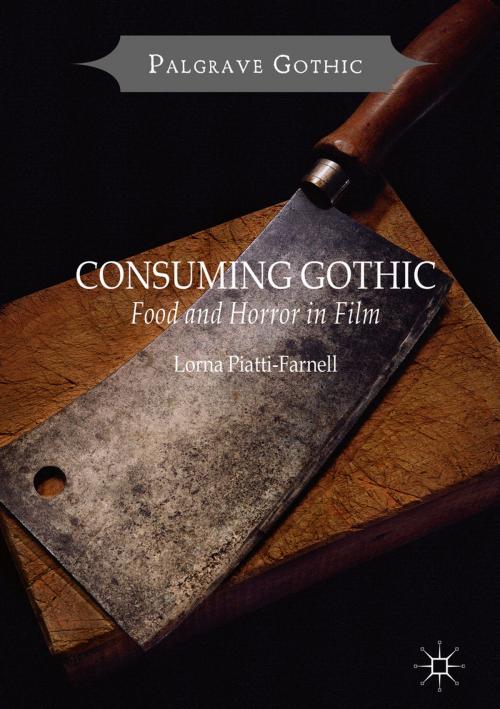| Author: | Lorna Piatti-Farnell | ISBN: | 9781137450517 |
| Publisher: | Palgrave Macmillan UK | Publication: | March 10, 2017 |
| Imprint: | Palgrave Macmillan | Language: | English |
| Author: | Lorna Piatti-Farnell |
| ISBN: | 9781137450517 |
| Publisher: | Palgrave Macmillan UK |
| Publication: | March 10, 2017 |
| Imprint: | Palgrave Macmillan |
| Language: | English |
This book offers a critical analysis of the relationship between food and horror in post-1980 cinema. Evaluating the place of consumption within cinematic structures, Piatti-Farnell analyses how seemingly ordinary foods are re-evaluated in the Gothic framework of irrationality and desire. The complicated and often ambiguous relationship between food and horror draws important and inescapable connections to matters of disgust, hunger, abjection, violence, as well as the sensationalisation of transgressive corporeality and monstrous pleasures. By looking at food consumption within Gothic cinema, the book uncovers eating as a metaphorical activity of the self, where the haunting psychology of the everyday, the porous boundaries of the body, and the uncanny limits of consumer identity collide. Aimed at scholars, researchers, and students of the field, Consuming Gothic charts different manifestations of food and horror in film while identifying specific socio-political and cultural anxieties of contemporary life.
This book offers a critical analysis of the relationship between food and horror in post-1980 cinema. Evaluating the place of consumption within cinematic structures, Piatti-Farnell analyses how seemingly ordinary foods are re-evaluated in the Gothic framework of irrationality and desire. The complicated and often ambiguous relationship between food and horror draws important and inescapable connections to matters of disgust, hunger, abjection, violence, as well as the sensationalisation of transgressive corporeality and monstrous pleasures. By looking at food consumption within Gothic cinema, the book uncovers eating as a metaphorical activity of the self, where the haunting psychology of the everyday, the porous boundaries of the body, and the uncanny limits of consumer identity collide. Aimed at scholars, researchers, and students of the field, Consuming Gothic charts different manifestations of food and horror in film while identifying specific socio-political and cultural anxieties of contemporary life.















